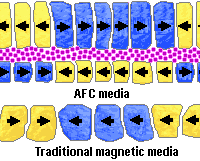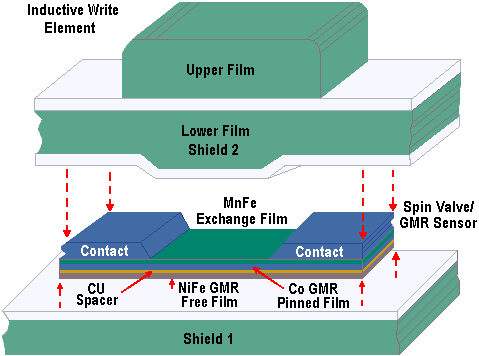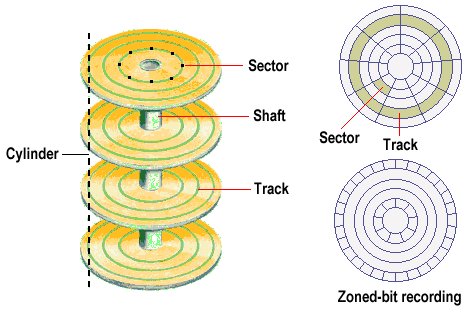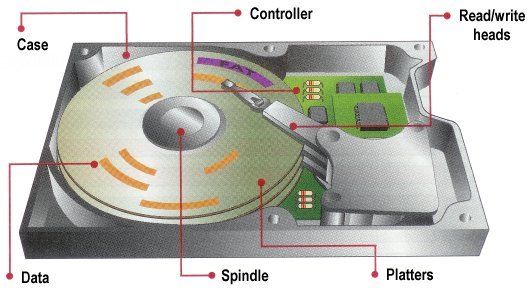In the past decade, the data density for magnetic hard disk drives has increased at a phenomenal pace, doubling every 18 months and - since 1997 - doubling every year. The situation had left researchers fearing that hard drive capacities were … [Read more...]
Hard Disk GMR Technology
Giant Magneto-Resistive (GMR) head technology builds on existing read/write technology found in TFI and anisotropic MR, producing heads that exhibit a higher sensitivity to changing magnetisation on the disc and work on spin-dependent … [Read more...]
Hard Disk MR Technology
In 1991, IBM's work on AMR technology led to the development of MR (magnetoresistive) heads capable of the areal densities required to sustain the disk drive industry's continued growth in capacity and performance. These circumvented the … [Read more...]
Hard Disk Capacity Barriers
Whilst Bill Gates' assertion that 640KB ought to be enough for anyone is the most famous example of lack of foresight when it comes to predicting capacity requirements, it is merely symptomatic of a trait that has afflicted the PC industry … [Read more...]
Hard Disk Capacity
Since its advent in 1955, the magnetic recording industry has constantly and dramatically increased the performance and capacity of hard disk drives to meet the computer industry's insatiable demand for more and better storage. The areal … [Read more...]
Hard Disk AV Capability
Audio-visual applications require different performance characteristics than are required of a hard disk drive used for regular, everyday computer use. Typical computer usage involves many requests for relatively small amounts of data. By … [Read more...]
Hard Disk (Hard Drive) Performance – transfer rates, latency and seek times
The performance of a hard disk is very important to the overall speed of the system - a slow hard disk having the potential to hinder a fast processor like no other system component - and the effective speed of a hard disk is determined by a number of factors. Chief among them is the rotational … [Read more...]
File systems (FAT, FAT8, FAT16, FAT32 and NTFS) explained
The precise manner in which data is organised on a hard disk drive is determined by the file system used. File systems are generally operating system dependent. However, since it is the most widely used PC operating system, most other … [Read more...]
Hard disk (hard drive) format – the tracks and sectors of the hard disk
When a hard disk undergoes a low-level format, it is divided it into tracks and sectors. This low-level format only happens once in the drive's life before it leaves the manufacturer's factory. All subsequent formatting of hard drives derive from this initial low level format, which contains … [Read more...]
Hard Disk (hard drive) Operation
The disc platters are mounted on a single spindle that spins at a typical 10,000rpm. On EIDE and SCSI drives the disk controller is part of the drive itself. It controls the drive's servo-motors and translates the fluctuating voltages from the head into digital data for the CPU. Data is … [Read more...]




